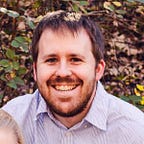Killers of the Flower Moon: The Osage Murders and the Birth of the FBI — David Grann
A story that excels as a murder mystery and a compelling narrative of the Osage in Oklahoma
A finalist for both the National Book Award and the Goodreads Choice Award for History & Biography, David Grann’s 2017 bestseller Killers of the Flower Moon has received much praise. And I must agree. But, while billed as a murder mystery for good reason, the depth of Killers of the Flower Moon lies in its perspective on history. It is more than just a story of murder and how to catch a killer. It is retrospective on how we treat other humans, the dangers of a culture that hates those unlike them, and a case study in how history (for reasons known and unknown) sometimes needs a second look.
The Osage are a Native American tribe that lived in present-day Missouri, Kansas, and my native Arkansas until they were, like others, forcibly relocated to present-day Oklahoma, then called Indian Territory. Then, as the land given to them was found to contain large reserves of oil, the Osage were thankfully not simply moved somewhere else but they were given a cut of the money made from said oil. As a result, many Osage became very rich… very quickly. This type of microwave-speed riches can have both positive and negative effects (just ask any lottery winner), and Grann details these effects in his book. These results unmistakably include the envy and distrust of white Americans in Oklahoma and elsewhere, and that is the heart of Killers of the Flower Moon.
In hopes of not detracting from your enjoyment of the book, I will only say that the thread of this envy and distrust runs through it from the moment they strike oil, and it is only through Grann’s skillful weaving of other threads that you see the grander design. He shows the harm that can be caused when racial and economic strife run rampant. If it stopped here, it would be a terrific history book. However, what happens next takes it to a higher level.
At the beginning of “Chronicle Three” (I listened to this on audiobook and each “chronicle” is read by a different narrator, a unique and well-employed tactic), Grann takes the reins of the narrative personally and talks about his research into the Osage murders. This is not simply a storytelling flourish, but it is necessary in order to tell the story as it should be told. This is because he has already outlined the history of the Osage murders as it stood before he undertook this project, but now he is beginning to unravel that same history and reconfigure it all together. He finds many problems with the narrative of the Osage murders as they were resolved in court, and undertakes his own investigation into the facts of the murders.
This investigation chiefly takes place at the National Archives branch in Fort Worth, TX, a building I have passed by many times on my commute and of which I’ve wondered out loud what it contains. The answer: all federal historical documents created in Arkansas, Louisiana, Oklahoma, and Texas. Grann visited here and found many documents leading to his conclusions in the last third of Killers of the Flower Moon. What are they? I won’t divulge that information, but I will tell you that it should shake your faith in history and humanity. History, because the Osage murders did not receive the coda deserved for the victims and their families and this was a failure of all those who recorded its history for over 80 years; humanity, because the depravity of the case is more complete than anyone else knew.
The depth of reporting and characters in Killers of the Flower Moon is impressive, and its technical brilliance is astounding. It truly is one of the best books of its kind, and I am happy to read more of David Grann if it reaches the heights of this narrative. If you are a reader of history or true crime and it’s not on your reading list, it should be.
I borrowed an audiobook of Killers of the Flower Moon from my local library. Borrow it, request it, or consider donating to your library today.
